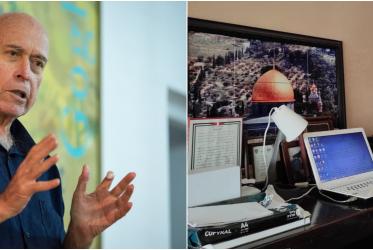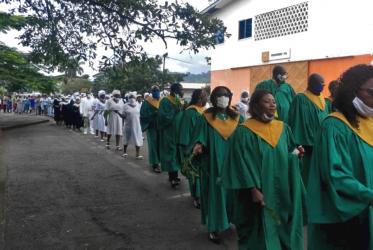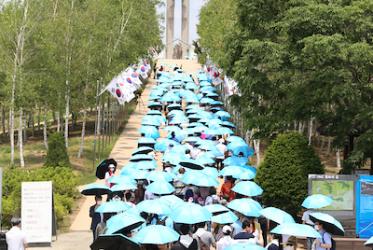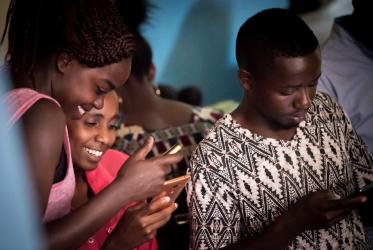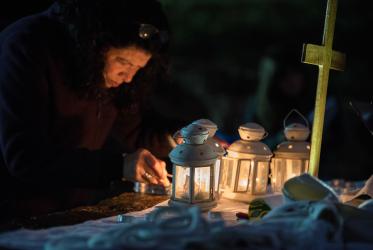Displaying 61 - 80 of 555
Fr Jamal Khader: “We need to keep hope alive” in Palestine
25 November 2020
A 10,000-Kms walk for justice and peace
06 March 2020
WCC expresses deep sadness, concern over mob violence in India
27 February 2020
Webinar on Middle East racism: “Never lose hope”
28 November 2019
Dr Saïd Ailabouni: God is on the side of rejected, oppressed, occupied
12 September 2019
